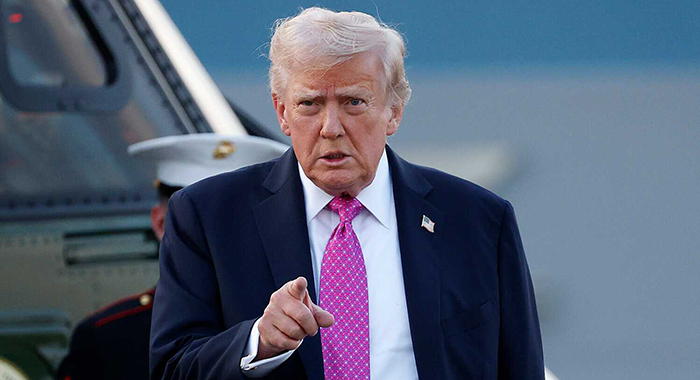Vincentians, much like people worldwide, hold strong and often polarized views on former U.S. President Donald Trump. Given the significant Vincentian diaspora in North America, these opinions are shaped by both local and global contexts. Trump’s presidency, marked by controversy and unconventional leadership, has sparked reflections on what a ‘Vincy Donald Trump’ might resemble. This analysis delves into key aspects of Trump’s tenure, drawing parallels to familiar leadership traits observed in Vincentian society.
Trump’s presidency was marred by numerous allegations of sexual misconduct, with multiple women coming forward to accuse him of assault. This pattern of behavior, coupled with recorded instances of disparaging remarks about women, raises questions about respect and accountability in leadership. Such conduct, while shocking to some, may resonate with Vincentians who have witnessed similar dynamics in their own political landscape.
Another notable feature of Trump’s administration was the appointment of family members to key government positions, leading to accusations of nepotism. This concentration of power within a familial circle mirrors practices that some Vincentians may recognize in their own governance structures.
Trump’s involvement in the Epstein scandal, though not fully disclosed, has raised eyebrows. His party’s efforts to block the release of related files suggest a potential misuse of influence to protect allies. This tactic of shielding information from the public may strike a chord with Vincentians familiar with opaque political maneuvers.
During his presidency, Trump frequently blamed Democrats for government shutdowns, despite his party’s control of Congress. This deflection of responsibility is a strategy that some Vincentians may find reminiscent of local political rhetoric.
Trump’s 2024 campaign, which focused heavily on the age of his opponent, Joe Biden, despite his own advanced years, highlights a tendency to project criticism onto others. This tactic of deflecting scrutiny may resonate with Vincentians who have observed similar political strategies.
Finally, Trump’s call for supporters to protest on January 6, 2021, and the subsequent push for a third term, underscore his relentless pursuit of power. This ambition, even at the cost of democratic norms, may mirror leadership behaviors familiar to Vincentians.
In conclusion, the parallels between Trump’s leadership and certain traits observed in Vincentian politics invite reflection on the nature of power, accountability, and governance. As Vincentians critique Trump, they are also prompted to examine their own political landscape with a critical eye.
